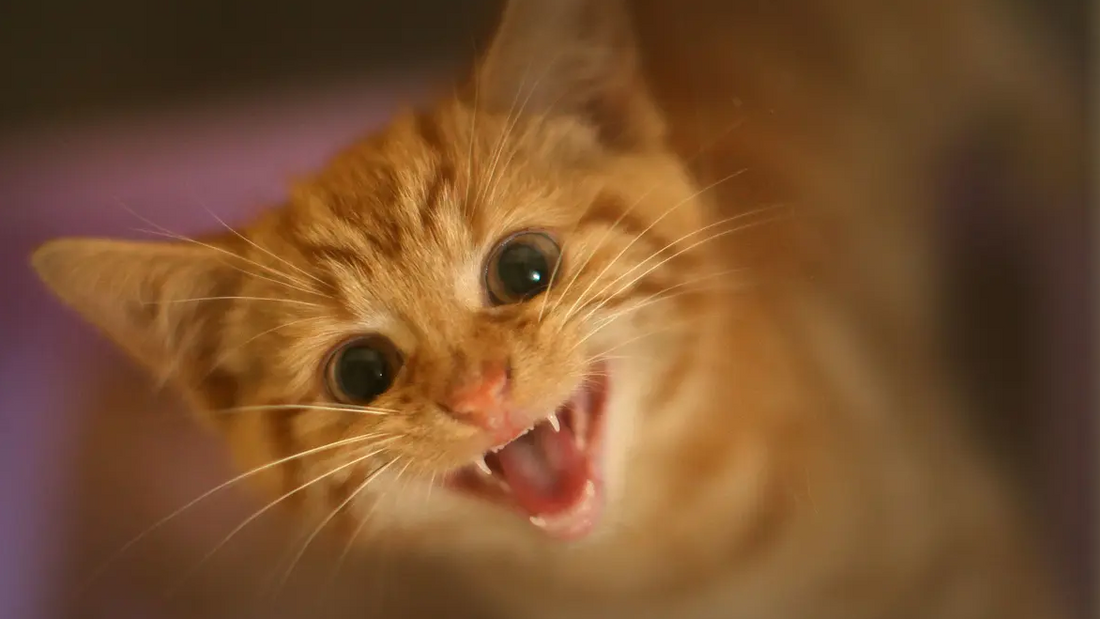
Do Kittens Automatically Have Rabies?
Share
In the Philippines, where stray animals are common and pet ownership is widespread, concerns about rabies remain significant. According to the Department of Health (DOH), there were 1,750 rabies-related deaths from 2020-2024, making it one of the country’s most feared but preventable diseases.
Unfortunately, along with the fear of rabies comes a lot of misinformation. One of the most common myths? That animals—especially pets like cats and dogs—are born with rabies, or are bound to develop it if unvaccinated.
In this article, we’ll explain how rabies is transmitted, how cats can become infected, and what steps you can take to protect yourself and your pets. Let’s separate fact from fear.
Rabies Is Not Inborn

An important thing to know is that rabies is not inborn. This means that kittens (and puppies) are not automatically born with the disease. Instead, they can get rabies by coming into contact with another animal that already has it.
Matthew Benedict Calibo of the University of the Philippines Los Baños Veterinary Teaching Hospital said this misconception among FIlipinos about rabies is “very wrong.”
“It’s a very common misconception that puppies and kittens are born with rabies or that eventually, somehow, they’ll get rabies if they’re not vaccinated. That’s not true. No animal, no mammal is born with rabies. No animal is inborn with rabies,” Calibo told ABS-CBN.
“So it has to be corrected, the misconception, na they’re born with it. [It] is very wrong. It’s something na I feel Filipinos really propagate the wrong way.”
Animals Don’t Just Get Rabies Eventually Either

Another related myth is that animals—especially unvaccinated ones—will somehow “develop” rabies on their own over time. This, too, is a common misconception among Filipinos. As one person innocently asked in the Facebook group CATS LOVERS PHILIPPINES:
“Hello po, ask ko lang, may rabies na po ba ang kitten na 7 weeks old? Salamat.”
But rabies doesn’t work like that. It’s not a disease that just appears in a healthy cat or dog. Again, for an animal to contract rabies, it must be exposed to the bite, scratch, or saliva of a rabid animal.
So, if you have an indoor cat who has never had contact with outside animals that carry the rabies virus, it should be rabies-free. The same cannot be said for pets who are allowed to roam in the streets by their owners, as these felines can come into contact with infected animals.
If I Adopt a Kitten from the Street, Does It Have Rabies?

Not necessarily. A kitten picked up from the street does not automatically have rabies, just like how an indoor kitten is not born with the disease.
However, stray kittens are at higher risk compared to pets that live indoors and are vaccinated, simply because they might come into contact with wild or unvaccinated animals carrying the virus.
If you adopt a stray kitten, it’s important to take it to a veterinarian as soon as possible for a health check-up and vaccinations, including the rabies vaccine if the kitten is old enough. This will help protect both your new pet and your family.
Anti-Rabies Vaccination Is A Must

Still, even if kittens are not born with rabies, you must do what you can to protect your fur baby (and yourself) from contracting the viral disease. The best method, of course, is vaccination.
“Rabies is a highly preventable disease [but] we have to be vigilant din,” Jeffrey Verona, an infectious disease specialist from San Lazaro Hospital, also told ABS-CBN. “If you’re a pet owner, if you are a fur parent, your dog or your cat, your fur babies should be vaccinated and should be updated sa mga veterinarians."
He added: “As a pet owner, fur parents, you also should be vaccinated… as well as your family members."
Verona urged everyone to get vaccinated long before coming into contact with a rabid animal. Don’t wait until it’s too late.
“It is prudent to be vaccinated… it is important for us to be vaccinated pa rin kasi if we get vaccinated, long term protection na siya and booster na lang siya eventually.”
He concluded: “If you were going to wait kung yung gagastos ka sa immunization versus doon sa ipapa-walang bahala mo siya, mas marami pa rin 'yung benefit doon sa vaccination. I would highly recommend that vaccination be done.”
Conclusion
While the fear of rabies is valid, especially in areas with high numbers of stray animals, it's essential to understand that not all cats, including kittens, carry the virus by default. Rabies is a preventable disease, and with proper vaccination and responsible pet ownership, the risks can be significantly reduced.
Always consult with a veterinarian when adopting a new pet, and ensure that all vaccinations are up-to-date to keep both your pusa and your family safe.
